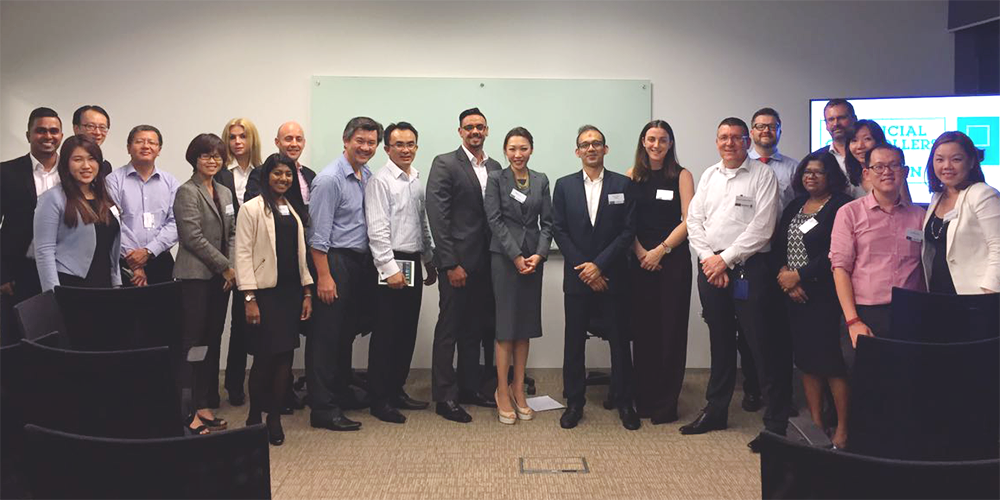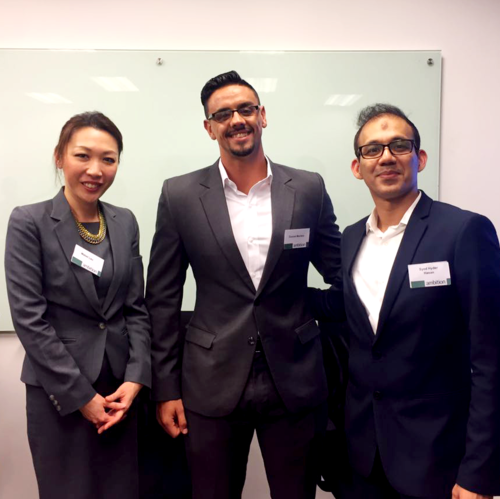2026 Market Insights & Salary Guide
Explore the latest hiring trends and in-demand skills shaping the employment landscape in 2026 to guide your hiring strategies or job search.

Explore the latest hiring trends and in-demand skills shaping the employment landscape in 2026 to guide your hiring strategies or job search.

Explore the latest hiring trends and in-demand skills shaping the employment landscape in 2026 to guide your hiring strategies or job search.

Explore the latest hiring trends and in-demand skills shaping the employment landscape in 2026 to guide your hiring strategies or job search.



"In order to become a financial leader of the future you need to be able to switch your mindset from a financial standpoint to a business one."
This was one of the main takeaways from the Ambition Malaysia CFO Forum on 13th October at Ambition's offices in Kuala Lumpur. We were privileged to have such a high-calibre panel for this event, which included Mabel Lau, CFO, Standard Chartered Malaysia and Hyder Hasan, Global Head of Finance, PureCircle Limited.
The brief for the event, which the panel explored, was the evolution of the finance leader role and guidance for aspiring finance professionals to help them move up the value chain towards being a CFO of the future.
The days of the CFO limiting their exposure to purely book-keeping activities are gradually coming to an end.
Hyder Hassan presented this point in compelling fashion with examples from his career to date. He gave many examples of how he would ‘wear the hat’ of the various stakeholder groups he would need to engage with in order to build the relationship and support effective decision-making in the interests of both commercial and P&L considerations.
For example, whilst with Unilever, during one of his presentations, he had a Unilever product flash up on the screen every 5 seconds. This was to drive the point home to his audience that someone buys a Unilever product somewhere in the world every 5 seconds, which clearly had a powerful impact to the management team in terms of realising commercial implications. As such, the advertising team found this to be such a powerful way of delivering the message, they ended up using it in their own marketing campaign. This served as an excellent bridging point between departments moving forwards.
In a similar way, the CFO of Standard Chartered,Mabel, realised very quickly in her role she had to become extremely business savvy once she joined and as such she invested considerable time building relationships not just with her immediate stakeholders, but with a very wide audience to help her build understanding and credibility across the bank.
Another key theme was the importance of not ‘shooting down’ creative ideas from the leadership ranks.
The job of the finance leadership is really to help those ideas become a reality. Clearly it is naive to think that all ideas are financially viable, but the processes of embracing ideas will help build a valuable connection between commercial and financial leaders within an organisation. Only when this type of relationship is cultivated will the business truly get the most out of their leadership team.
As part of this, we explored the notion of calculated risk, and how effective finance leaders can embrace this principle; gauging your organisation’s appetite for risk is key. Clearly, as CFO your role is as custodian to the financial welfare of the business and to safeguard against excessive risk. As such, the most effective path to take is to paint the most accurate picture reading the balance of risks and then actually allow senior commercial leadership decide on the course of action. This may seem a radical approach, but is increasingly the stance taken by the modern CFO.
Mabel explored the importance of effective management and delegation.
For instance, fully understanding the function and capability of those that report into yourself is critical to working effectively. This is key in terms of performance management and raising the bar within your department. She referred to finding a ‘magical middle area’, whereby you are not consumed in detail, but have a firm enough grip on everything to intervene and monitor standards.
She highlighted the importance of creating a culture of continual learning for yourself and team. Her suggestion was to start with immediate, more obvious grounds for learning such as the business domain in which your company operates. Perhaps from there, a good approach would be to learn about markets your company is thinking about breaking into and as such you can add value to the process of business expansion which is of course backed-up by the perspective of an experienced finance professional.

Q. Do you think in the future finance will be totally automated?
A. In the world of shared services, a high proportion of the roles are process oriented. There was a degree of consensus that such functions could be taken over by automation.
Both panel members could see the benefit to a degree, though clearly there is a limitation on this and it’s a question of balance. In situations where we need to interpret data, there is no substitute for human engagement.
Q. What is your view of transferability of experience between industries?
A. There is a perception across the F&A sector that candidates are not able to effective transfer, though this is changing.
Within F&A, of course there are a number of fundamental accounting skills that are applicable across all industries. There are also wider skills and capabilities that transcend industry, such as leadership, stakeholder management, commercial awareness and general ability to learn new things within a short time-frame etc. Every organisation can benefit from someone that can build something from scratch or that can improve internal process and this is not limited by industry experience.
Another key characteristic that applies here is motivation. To effectively switch industry takes energy and eagerness to learn and provided you have this there should be no barriers within reason.
Mabel added that there is a case by case aspect to this. If a team is comprised strictly of new employees, then bringing in a leader with no industry knowledge would not be a wise move. However, if you have a team that is already fairly self-sustaining and knowledgeable in the sector, then a non-industry specific leader could be accommodated.
Q. How do you maintain your knowledge in all areas of function but without getting too involved in every detail?
A. Mabel spoke about getting involved in the ins and outs of the organisation as key, and also working smarter not harder. It might not mean actually speaking to every single person in order to know what they do, though it is possible to identify and speak to all of the subject matter experts and gain sufficient insight of the course of time.
A special thanks to our panel of finance leaders who made the event a success thanks to their passion and innovative approach to the discussion points above.